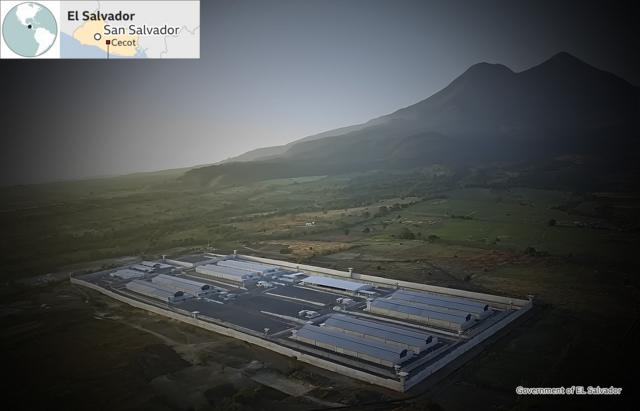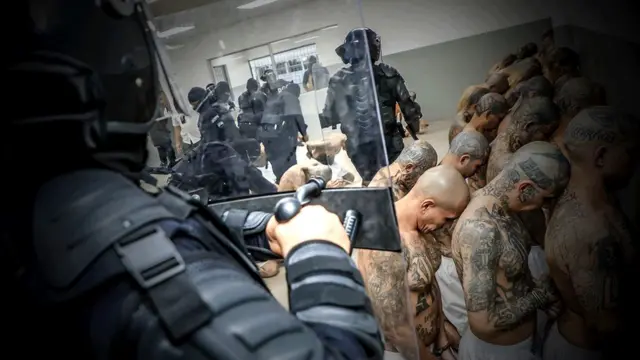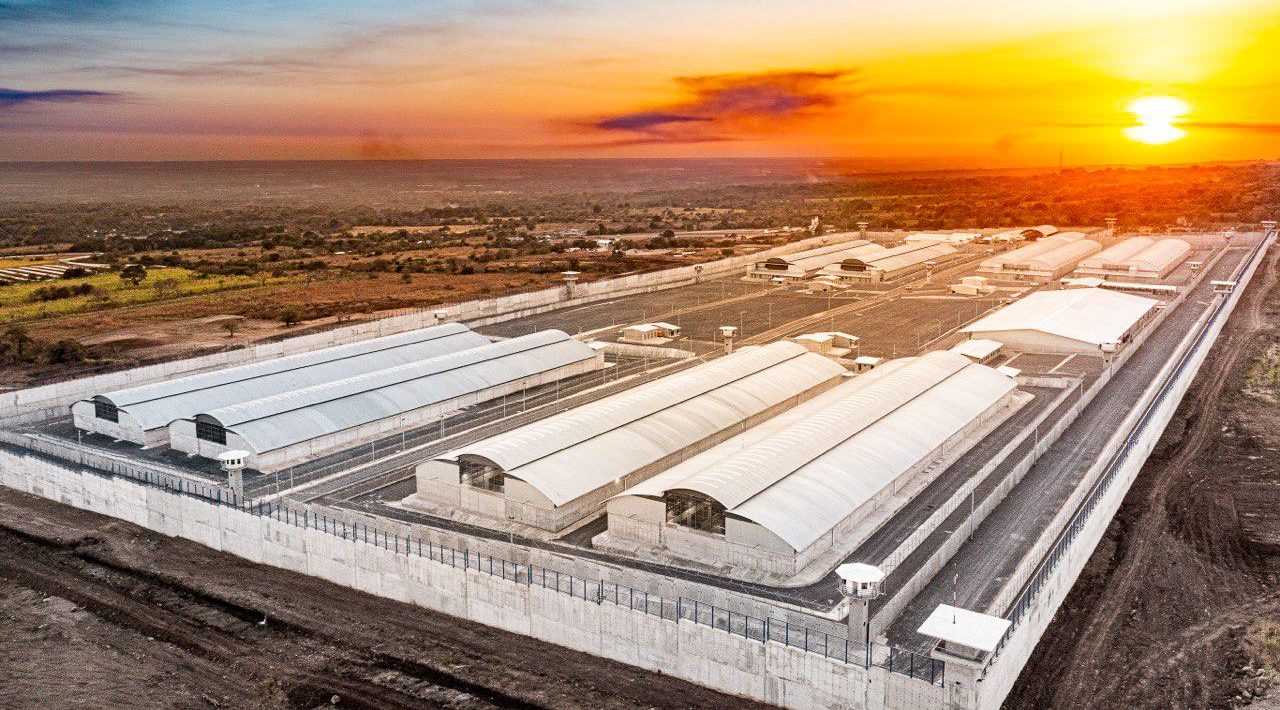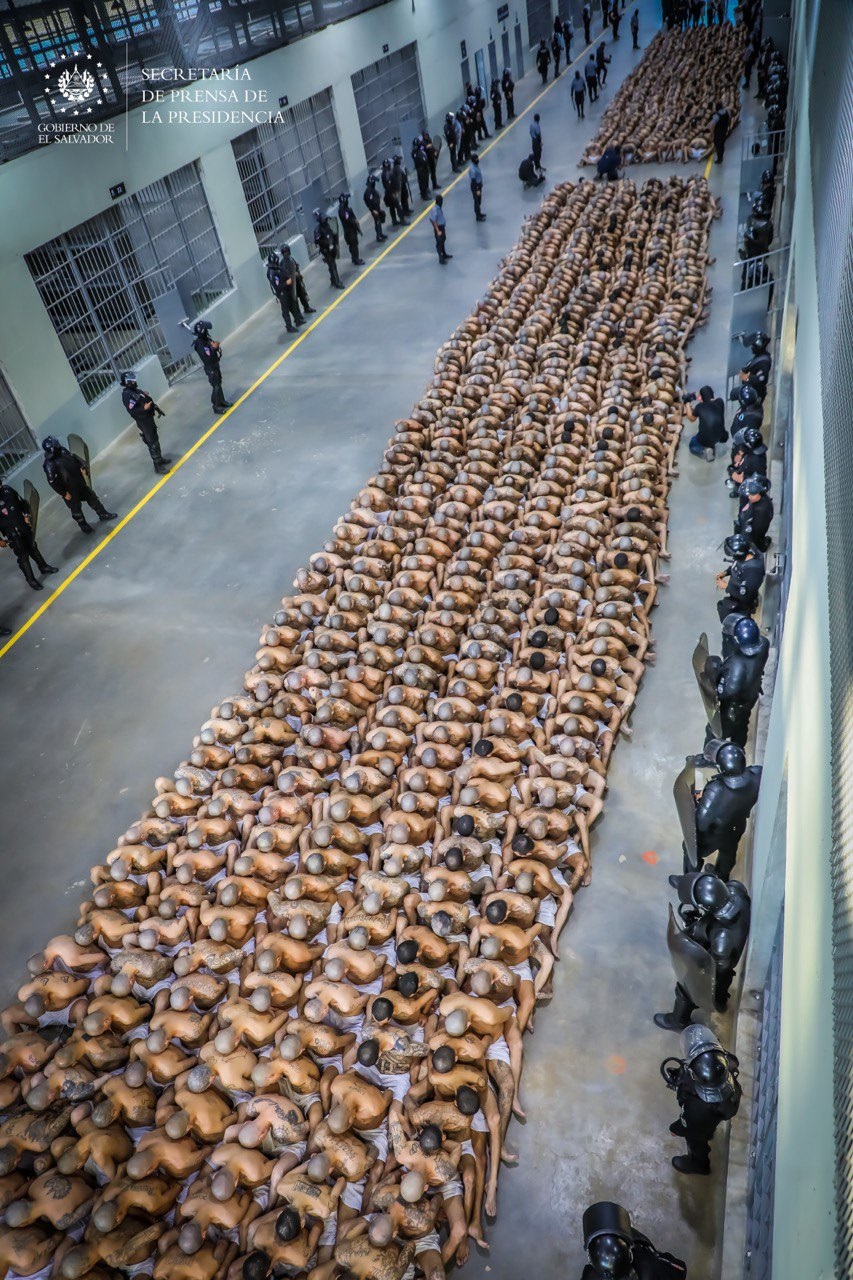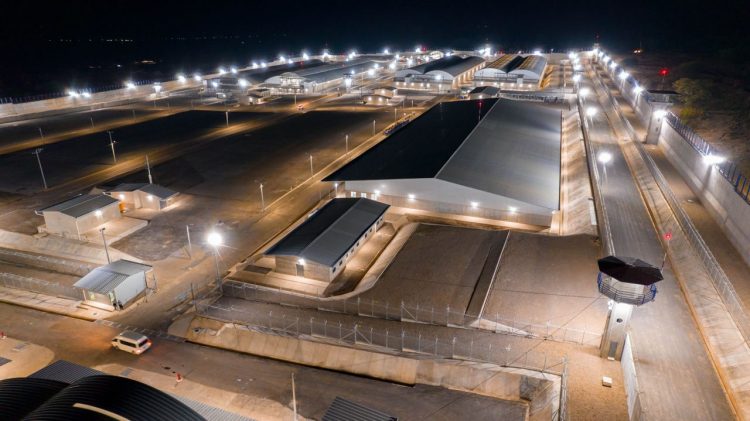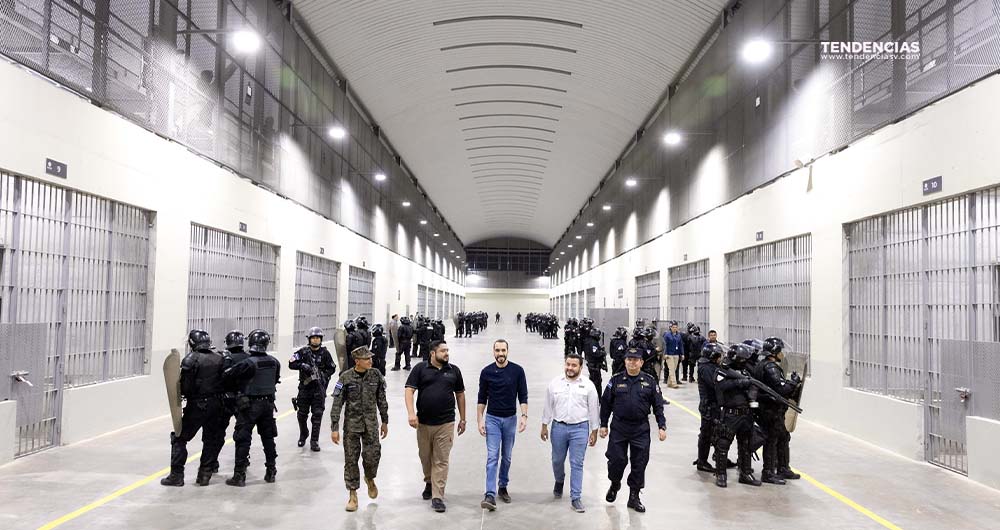
El Salvador, a country known for its rich culture and resilient people, has been making headlines recently due to the construction of its mega-prison, CECOT. The Centro de Confinamiento del Terrorismo (CECOT), which translates to the Terrorism Confinement Center, is a massive prison facility designed to house thousands of inmates, primarily those associated with gangs and terrorism. In this article, we will delve into the details of CECOT, its purpose, and the implications it has on the country and its people.
What is CECOT?
CECOT is a sprawling prison complex located in the Tecoluca municipality of San Vicente, El Salvador. The facility spans over 166 hectares and has the capacity to hold up to 40,000 inmates. The prison is designed to be a maximum-security facility, with state-of-the-art surveillance systems and robust security measures to prevent escapes and ensure the safety of both the inmates and the guards.
Purpose of CECOT
The primary purpose of CECOT is to house inmates who have been convicted of terrorism-related crimes, as well as those associated with gangs. El Salvador has been plagued by gang violence for decades, with groups like MS-13 and Barrio 18 wreaking havoc on the country. The government hopes that by housing these individuals in a single, secure facility, they can reduce the incidence of gang-related violence and create a safer environment for the general population.
Features of CECOT
CECOT is a cutting-edge prison facility that boasts several modern features, including:
State-of-the-art surveillance systems: The prison is equipped with advanced CCTV cameras, motion detectors, and alarm systems to prevent escapes and monitor inmate activity.
Robust security measures: The facility has multiple layers of security, including perimeter fencing, watchtowers, and guard patrols.
Rehabilitation programs: CECOT offers various rehabilitation programs, including education and job training, to help inmates reintegrate into society upon release.
Medical facilities: The prison has a fully equipped medical center, staffed by trained medical professionals, to provide healthcare services to inmates.
Implications of CECOT
The construction of CECOT has significant implications for El Salvador and its people. While the prison is designed to improve security and reduce gang violence, it also raises concerns about human rights and the treatment of inmates. Critics argue that the prison's massive size and maximum-security design may lead to inhumane living conditions and violate the rights of inmates.
Moreover, the prison's focus on housing gang members and terrorists has sparked debate about the effectiveness of this approach in reducing violence. Some argue that addressing the root causes of gang violence, such as poverty and lack of opportunities, is a more effective long-term solution.
CECOT, El Salvador's mega-prison, is a complex and multifaceted issue that has sparked both hope and concern. While the facility's state-of-the-art design and robust security measures may improve security and reduce gang violence, it is essential to consider the potential implications on human rights and the treatment of inmates. As the country moves forward, it is crucial to address the root causes of gang violence and ensure that CECOT is used as a tool for rehabilitation, rather than simply a means of incarceration.
By understanding the purpose, features, and implications of CECOT, we can better appreciate the complexities of El Salvador's approach to addressing gang violence and work towards creating a safer, more just society for all.

